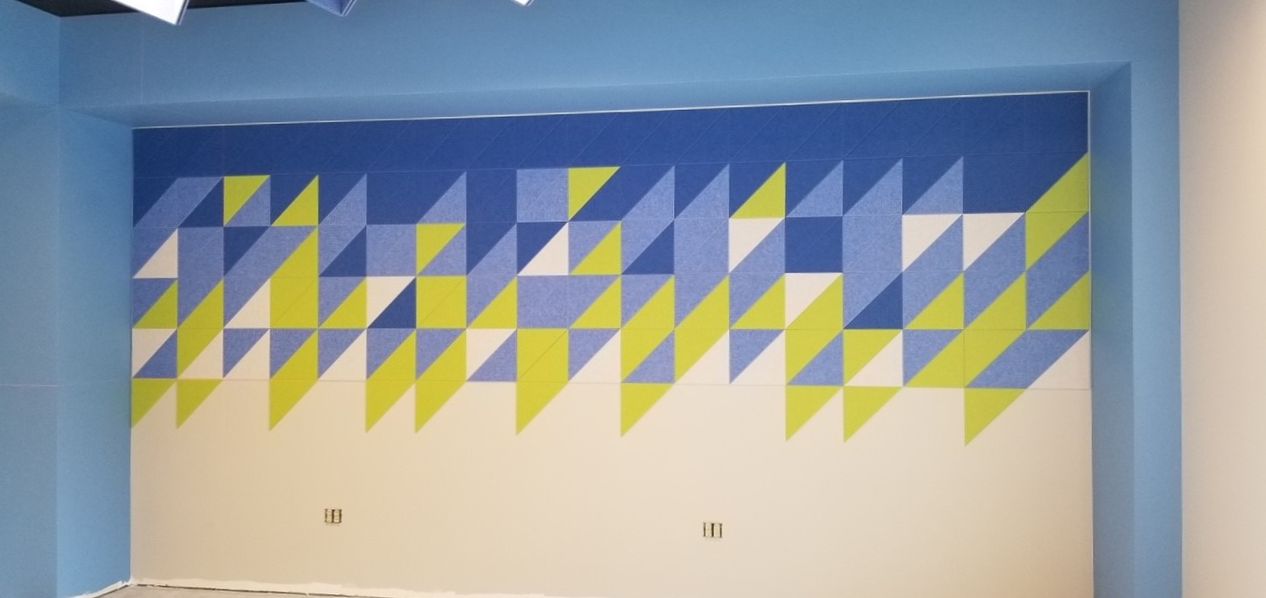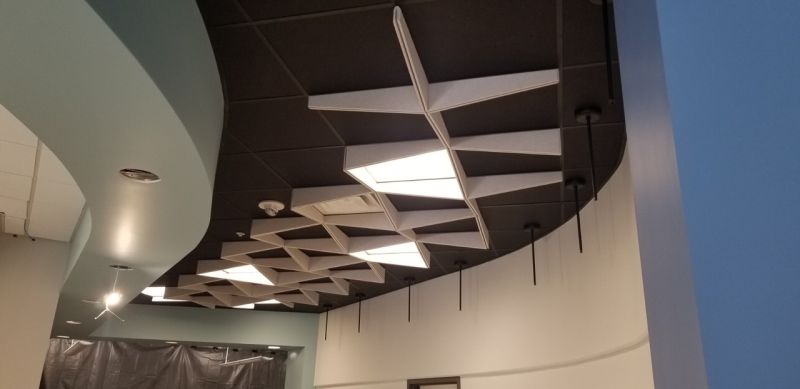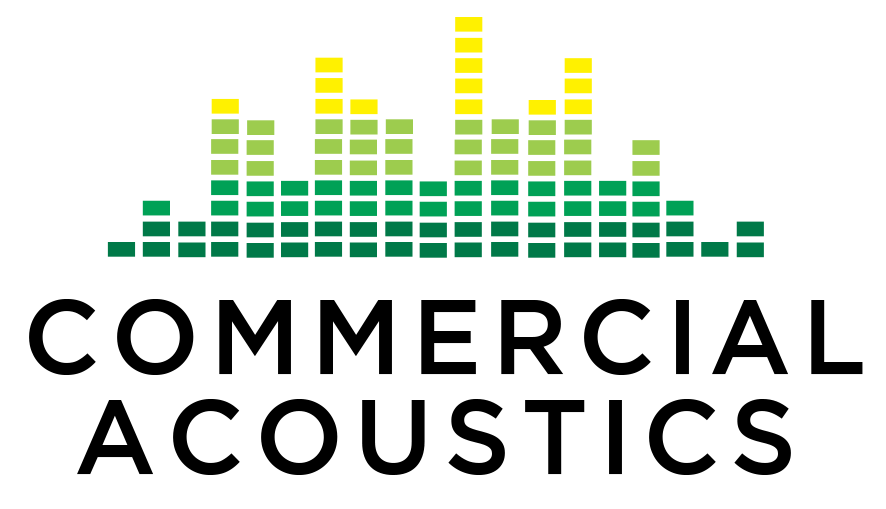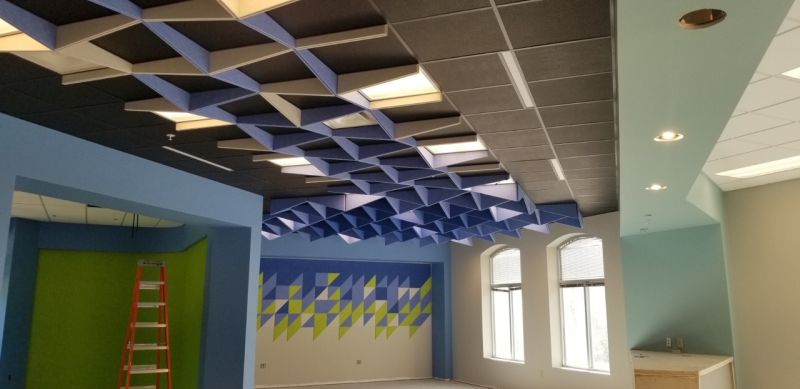Library acoustic treatment can be critical, especially if the library tends to hold frequent classes or events with speaking engagements. Since libraries are a place people can turn to for education, it’s important that the acoustics fit the use of the space.
Library Acoustic Treatment
Commercial Acoustics was contracted by Conyers Library to provide and install custom acoustical wall panels and ceiling baffles. For the wall treatment, the architect specified Tangram Carved Wall Tile, and for the ceiling baffles, they specified Switchblades. While these products are not made by Commercial Acoustic and came from 3rd party vendors, our team of experts is able to install most specialty acoustic products.
Similar to our acoustic felt panels, the Tangram wall tiles and Switchblade ceiling baffles are made from recycled polyester. Clients typically go this route as opposed to fabric wrapped fiberglass panels for aesthetics, lower cost and ease of installation. The carved wall tiles were peel and stick, if they weren’t typically they’re adhered to walls with liquid nails. These acoustic ceiling baffles also attached directly to the ACT ceiling grid, while our typical baffles are hung using airline wire.

Benefits of Polyester Acoustic Panels
First, felt acoustic panels and felt baffles tend to be more affordable than fabric wrapped fiberglass panels. This is due in part to the fact that they don’t need to be fabric wrapped, as the polyester is already dyed, and because they’re made form recycled materials.
Also, because they’re already dyed to the desired color, and can be attached using liquid nails (as opposed to impaling clips or z-clips), this cuts down on installation time. The Switchblade ceiling baffles are also much easier and faster to install, as they attach directly to the ACT ceiling grid, rather than being hung from the ceiling with airline wire on either side.

While recycled polyester panels are typically more affordable and easier to install, they don’t perform as well as fabric wrapped fiberglass panels. Polyester panels typically only have a noise reduction coefficient (NRC) of around 0.25-0.5. The NRC correlates to how much sound a material absorbs (for echo reduction purposes). 1″ fabric wrapped fiberglass panels have an NRC of 0.90, while 2″ acoustic panels have an NRC of 1.05.
If your library or classroom project has reverberation or echo issues, consider Commercial Acoustics’ Ekko Eraser Acoustic Felts or Ekko Eraser Acoustic Panels to reduce your reverb time.

